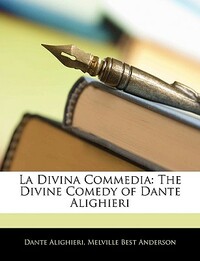Take a photo of a barcode or cover
311 reviews for:
La Divina Commedia: The Divine Comedy of Dante Alighieri
Melville Best Anderson, Dante Alighieri
311 reviews for:
La Divina Commedia: The Divine Comedy of Dante Alighieri
Melville Best Anderson, Dante Alighieri
"To race now over better waves, my ship of mind - alive again - hoists sail, and leaves behind its little keel, the gulf that proved so cruel. And I'll sing, now, about that second realm where human spirits purge themselves from stain, becoming worthy to ascend to heaven."
Inferno showed us the punishments (torments, rather) of the damned. As much as you might have pitied these souls you can't help but feel (in most cases) that it's all well and good that they suffered since they were evil people and they deserved it. They did bring it on themselves, mostly. Limbo is another issue.
Purgatory brings more sufferings but this is suffering that hurts more to the reader. These are people who are happily bearing their punishment because once they are purified they can go to heaven. These are sinners but somewhat righteous ones. It breaks your heart to see these people smiling or singing or chanting as they ask Dante to send word to their living relatives - prayers from the righteous living help shorten their time on the mountain. It's hopeful while at the same time being pitiful.
As in Inferno, the imagery is fantastic and the verse is superb. The one thing that takes away from the experience - for me - is these constant interjections from Virgil or Dante on random things about Florence or whatever. Stupid to say, I know, since that is largely a part of the Comedy as Hell, Purgatory, and Heaven are but it just seems to be jarring here the way it wasn't in Inferno. Maybe it's the different translation.
Purgatory brings more sufferings but this is suffering that hurts more to the reader. These are people who are happily bearing their punishment because once they are purified they can go to heaven. These are sinners but somewhat righteous ones. It breaks your heart to see these people smiling or singing or chanting as they ask Dante to send word to their living relatives - prayers from the righteous living help shorten their time on the mountain. It's hopeful while at the same time being pitiful.
As in Inferno, the imagery is fantastic and the verse is superb. The one thing that takes away from the experience - for me - is these constant interjections from Virgil or Dante on random things about Florence or whatever. Stupid to say, I know, since that is largely a part of the Comedy as Hell, Purgatory, and Heaven are but it just seems to be jarring here the way it wasn't in Inferno. Maybe it's the different translation.
Very dry humor,
With superb imagery.
Not good for children.
With superb imagery.
Not good for children.
Okay, I only read the Inferno, but I really enjoyed the translation by John Ciardi--both as poetry and (with his comprehensive notes) as commentary. I looked around at various editions to get a sense of how the verse was handled and ended up buying this complete ebook version for the iPad. I thought Ciardi handled the rhyming pattern and meter really well (basically employing an ABA BAB scheme). It's impossible to use Dante's AAA rhyme scheme in English, but Ciardi's simple pattern seemed like a good adaptation. Also Ciardi's language is closer to what I think the author intended (albeit for our era and language), as Dante wrote in Italian when almost all scholarly works and serious poetry would have been written in Italian.
I'm glad I finally read this, both for getting to understand the source from which so many of our ideas about hell came, and for getting some of the interesting historical tidbits, which usually had to be explained in the notes. But being able to read an engaging translation made this a surprisingly enjoyable tour of hell, instead of the slog I'd feared.
Even though I skipped over Purgatory and Paradise, I'd recommend this Ciardi translation for whatever circle of the afterlife you're planning on visiting. But if you ask me, go straight to hell.
I'm glad I finally read this, both for getting to understand the source from which so many of our ideas about hell came, and for getting some of the interesting historical tidbits, which usually had to be explained in the notes. But being able to read an engaging translation made this a surprisingly enjoyable tour of hell, instead of the slog I'd feared.
Even though I skipped over Purgatory and Paradise, I'd recommend this Ciardi translation for whatever circle of the afterlife you're planning on visiting. But if you ask me, go straight to hell.
I don't care for Clive James much generally, but this is a lively and lucid translation. A bit prose-y but not prosaic, James stretches his lexicon and his imagination without straining for prosodic perfection or for the kind of poetic concision that often produces obscurity.
The book should be called "Dante meets various Italians in the afterlife, has some chats." I imagine that for its time and in the original language this was a masterpiece, but for me it was a real slog. I read the Kenneth Mackenzie translation and maybe it's a bad one, but the concept of such a detailed and absurd hierarchy in the afterlife just put me off. I'm not a religious person, but even if I was I feel like this portrayal of God's will would be hard to swallow. What oddly specific punishments for oddly specific sins! And how many times can you read in the heaven book that something is too beautiful to put into words without yelling at the book that it's your very job to put it into words?! I enjoyed the helpful footnotes and engravings a lot, though.
Reading this alongside Guido Ruggiero’s The Renaissance in Italy is A+ recommended. Once again, vastly more interesting than my first exposure, where school curriculum wanted it read like it was Pilgrim’s Progress. I needed the Bondanella introduction back then to dispense with the nonsense: “Such allegorical abstractions are simply not what Dante’s great poem is all about.”
While still a stunning classic that manages a dose of hope after having been to literal Hell in the first part of The Divine Comedy, I had a much more difficult time keeping my interest up in the second section of this narrative poem. It isn't nearly as accessible as part one. Plus, I suppose it didn't help that I read an older edition that had minimal notes and context, considering that so much of this requires a good deal of context for greater understanding.
And onward Dante journeys! I like this one because it isn't so... doom-and-gloom. Things like purification and beauty start to become a thing and instead of the sinners, we have the repenters.





